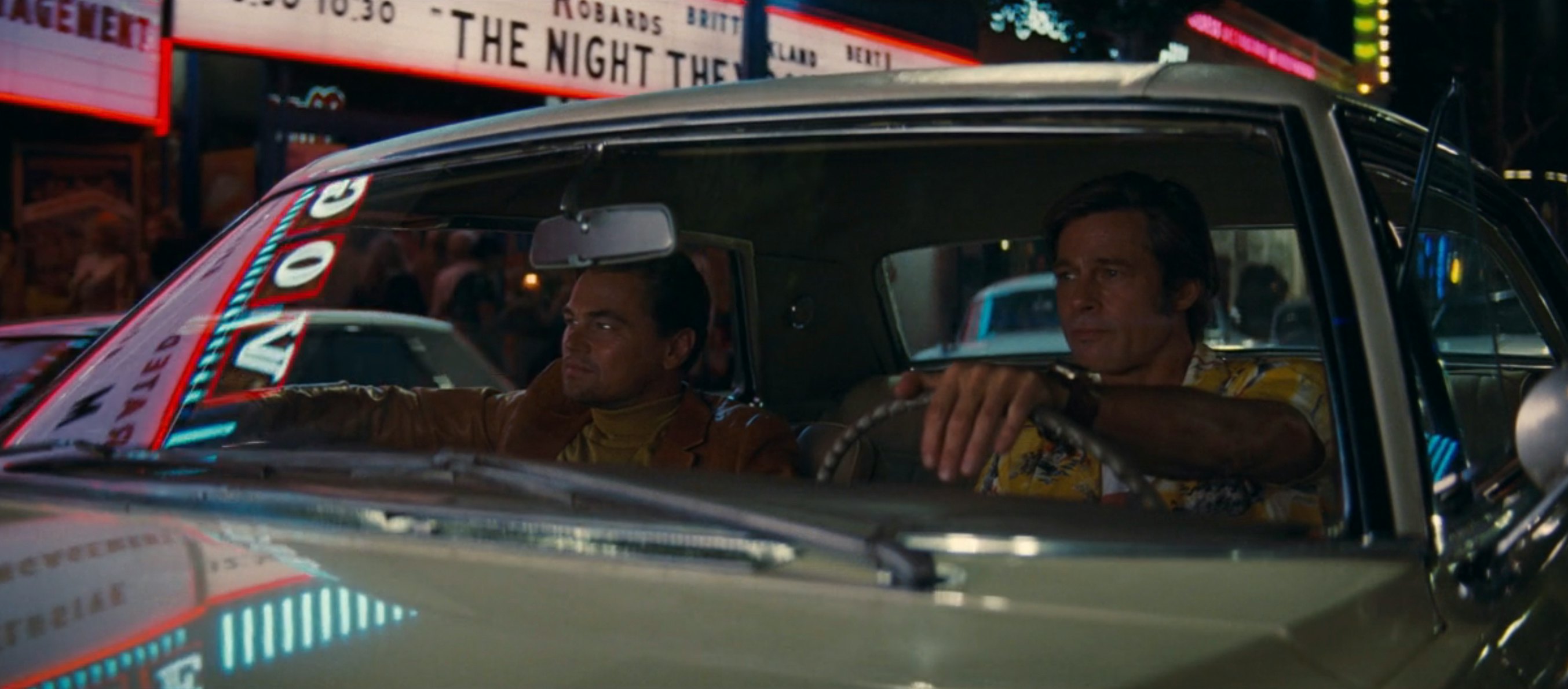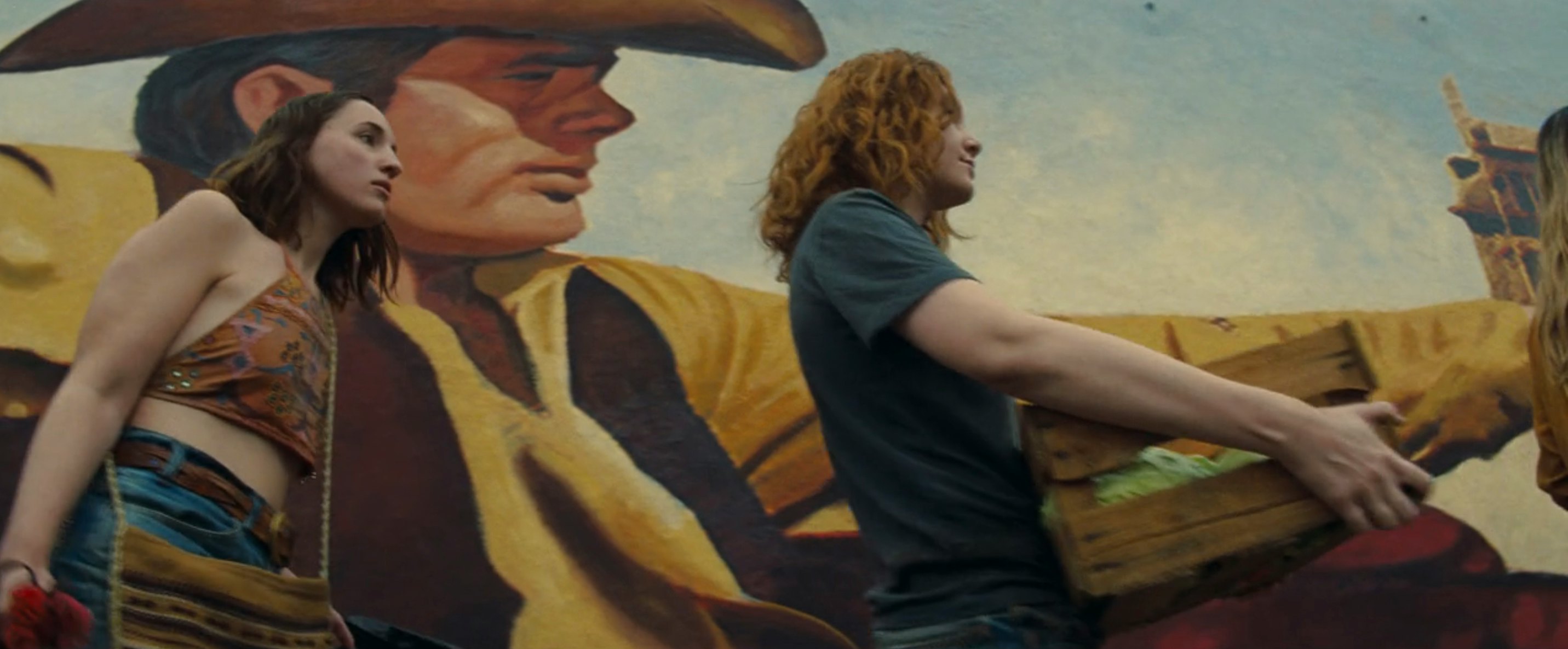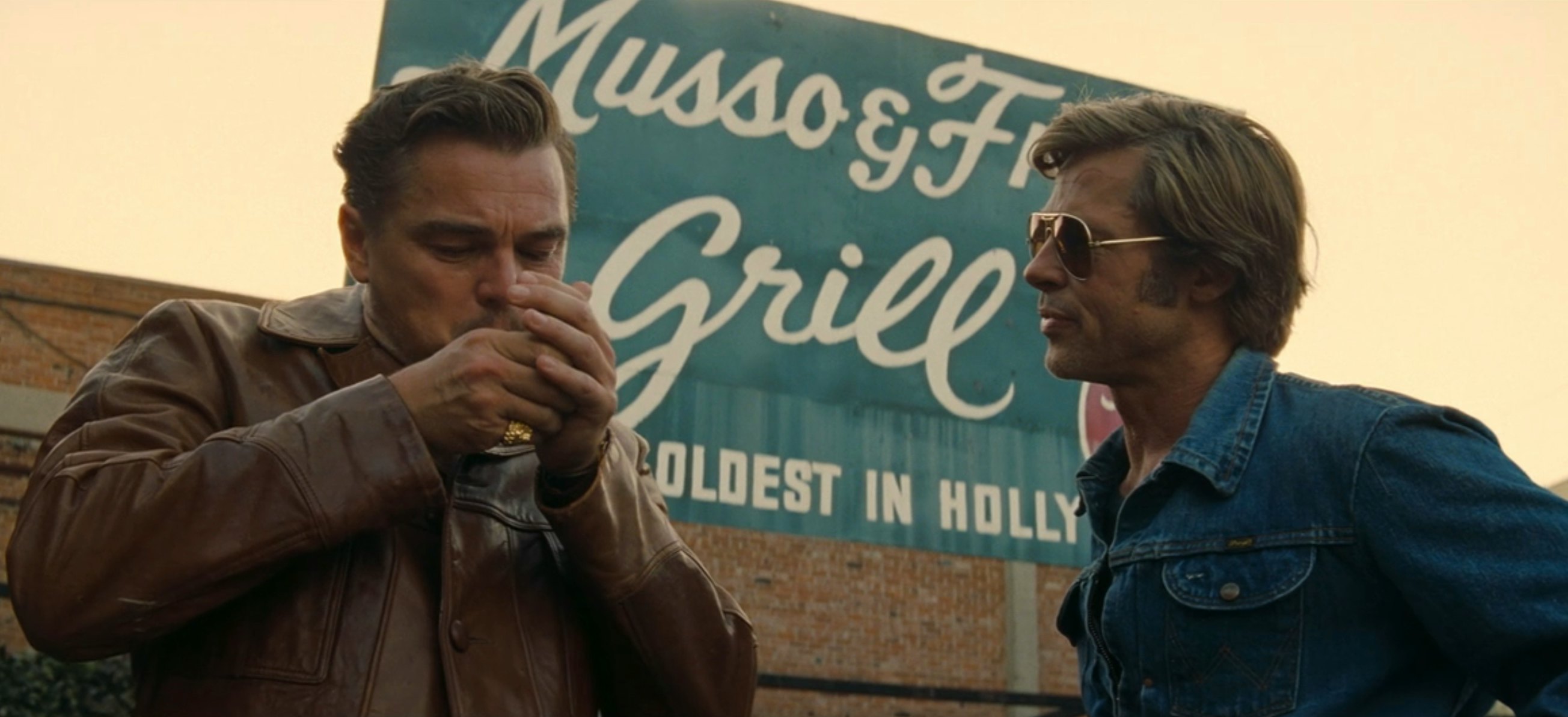
Quentin Tarantino isn't afraid to rewrite history. He's done it multiple times. In Inglourious Basterds, he gave a few American and French Jews the chance to deliver Hitler the painful, bullet-riddled death he deserved. In Django Unchained, he conceived a story in which a Black slave in the 1850s is given the opportunity to exercise an entire history's worth of racial rage and pain on some of the worst white racists ever rendered onscreen. Righteous anger is the prevailing emotion of both films — and it burns so hot it almost melts the celluloid they were captured on.
In Once Upon a Time in Hollywood, rage is still present, but it isn't given center stage. Instead, that spot is reserved for a feeling much more slippery but no less gripping: melancholy. It's a film in which Tarantino reimagines one of the most infamous moments in modern American history: The Charles Manson-ordered murders of Sharon Tate, her unborn child, and her friends: Abigail Folger, Wojciech Frykowski, Steven Parent, and Jay Sebring. But Once Upon a Time in Hollywood doesn't just avenge them. Through Tarantino's unusually mournful eyes, it also looks back on a pivotal turning point in American culture and wonders what might have been had things not gone so horribly wrong.
Perhaps that's why, even five years after its release, the film's hold on its admirers hasn't slipped, but rather tightened.
In her essay, The White Album, Joan Didion famously wrote of the Manson Cult's crimes, "Many people I know in Los Angeles believe that the Sixties ended abruptly on August 9, 1969 ... The tension broke that day. The paranoia was fulfilled.” The paranoia Didion refers to hangs heavy like a golden haze over Once Upon a Time in Hollywood. Set in 1969 Los Angeles, the film revisits the polarizing period in American history when the tensions between the old-fashioned members of the Silent Generation and the counter-culturalist Baby Boomers seemed to be on the edge of completely boiling over.
This clash is made apparent early in Once Upon a Time in Hollywood when Tarantino cuts abruptly to multiple women of Manson's cult (led by Margaret Qualley's Pussycat) emerging as blurry figures on the literal horizon. As they come into focus, Tarantino shows them scavenging for food in supermarket dumpsters and walking alongside a mural of James Dean in Giant. The latter image is rendered in a low-angle pan that visually articulates so many of the contradictions of 1960s America. The Manson girls are skinny, barefoot, and unassuming, and yet Tarantino frames them in such a way that both communicates their nonetheless imposing power, and positions them in stark opposition to the Hollywood and America of the past.
The above image isn't just meant to criticize the wilted flower children captured within it. Notice also the mural behind them. In Giant, James Dean's character, Jett, seems at first to be everything Americans were taught for so long to associate with the cowboy: ambitious and masculine. Once Jett strikes oil, though, the cravenness of his ambition is revealed and the dangerous insecurity lurking beneath his handsome facade is laid bare. He is an American Cowboy in every sense of the phrase and a perfect symbol of what the hippie movement was originally created to oppose. Jett is, in his own way, also a worthy stand-in for Once Upon a Time in Hollywood's similarly complex, flawed anti-heroes: Leonardo DiCaprio's Rick Dalton and Brad Pitt's Cliff Booth.

Rick, a once-famous TV actor, is an alcoholic narcissist who bucks against modern trends. Cliff, meanwhile, is a laidback, seemingly principled stunt double... who may or may not have killed his wife. They're a pair of middle-aged burnouts who we grow to love in spite of their flaws, and they both carry themselves like cowboys lost in time. That's a detail reinforced by the film's opening scene, in which Rick and Cliff are interviewed on the set of the latter's star-making Western TV show, Bounty Law.
They don't, by any means, seem like men capable or particularly interested in helping out those who have come after them. That’s exactly what they end up doing, though. In the film's third act, a chance run-in with Rick inspires Manson's chosen murderers to rant about how the heroes of their childhood, figures like Rick's Bounty Law protagonist, failed to set a proper standard for them. This moment doubles as both a dig on Tarantino's part at the belief that violence in movies is responsible for violence in real life and a piece of biting commentary on how the hippie movement’s desire to leave the ways of the past behind was ultimately twisted and tainted. Incensed, they decide to kill everyone in Rick's house rather than his next door neighbor, Sharon Tate (played beautifully by Margot Robbie).
It doesn't go well for the three would-be murderers, who are quickly killed by both Cliff and Rick. In fighting off their attackers, the duo don’t just unknowingly save Sharon and her friends. They also briefly become the most archetypal versions of themselves. Rick becomes the flamethrower-wielding hero he's played in movies, and Cliff assumes the role of his best friend's stunt double and bodyguard as if he was literally made for it. They become heroes, despite all of their many shortcomings. Through them, Tarantino exercises his rage over what the Manson Cult did not only to Sharon and co., but also to the Los Angeles (and America at large) he grew up in. With each violent blow that Rick and Cliff throw, it's hard not to feel like Tarantino himself is using his tools as a filmmaker to reach back through time and do what he feels history failed to.

It's easy to see why many initially reacted negatively to the unflinching brutality of Once Upon a Time in Hollywood's final act. In none of Tarantino’s other movies is the climactic violence preceded by so much unabashed warmth, nostalgia, and reverence. Much like the real-life event that it rewrites and subverts, though, Once Upon a Time in Hollywood's closing sequence brings a period of relative peace to an abrupt, horrifying conclusion. However, unlike the climaxes of Django Unchained and Inglourious Basterds, the film's final act doesn't give those who were wronged the chance to avenge themselves. It's not Robbie's Sharon who kills her real-life counterpart's killers. Instead, it's the cowboys of yesterday rescuing the children of tomorrow.
In The White Album, Didion discusses how there was a growing sense in the months leading up to the murders on Cielo Drive that what was going on had to end somehow. "The mystical flirtation with the idea of ‘sin'—this sense that it was possible to go ‘too far,’ and that many people were doing it—was very much with us," Didion wrote. "A demented and seductive vortical tension was building in the community. The jitters were setting in." Tarantino keys into this unnerving sense of impending doom in, perhaps, one of his finest ever sequences — a montage that kicks off Once Upon a Time in Hollywood's third act.
As Sharon, Cliff, and Rick all go through the motions of what first-time viewers initially suspect will be their last night alive, Tarantino cuts to shots of Los Angeles' neon signs lighting up while "Out of Time" by The Rolling Stones plays. "Baby, baby, baby, you're out of time," Mick Jagger croons. If Once Upon a Time in Hollywood played by any other filmmaker's ruleset, he'd be right.
But notice one small detail that recurs throughout the film — that of Cliff, Rick, and Sharon's cars driving in and out of parking lots in the opposite direction of the painted arrows on the ground. They're not out of time, but pushing against it. They are being guided by Tarantino himself, who uses his propensity for radical historical revisionism to imagine yet again not just what could have been, but what should have and yet never was.
He saves Sharon Tate, her child, and her friends the only way he knows how. In doing so, he wistfully imagines a world in which both the Silent Generation actually stepped up to save and protect those younger than them and the hippie movement wasn't poisoned by resentment and generational rage. It's cinema as both memory and fantasy. A fairytale, a eulogy, and a reclamation. It's unlikely we'll ever see another film like it — from either Tarantino or anyone else.







